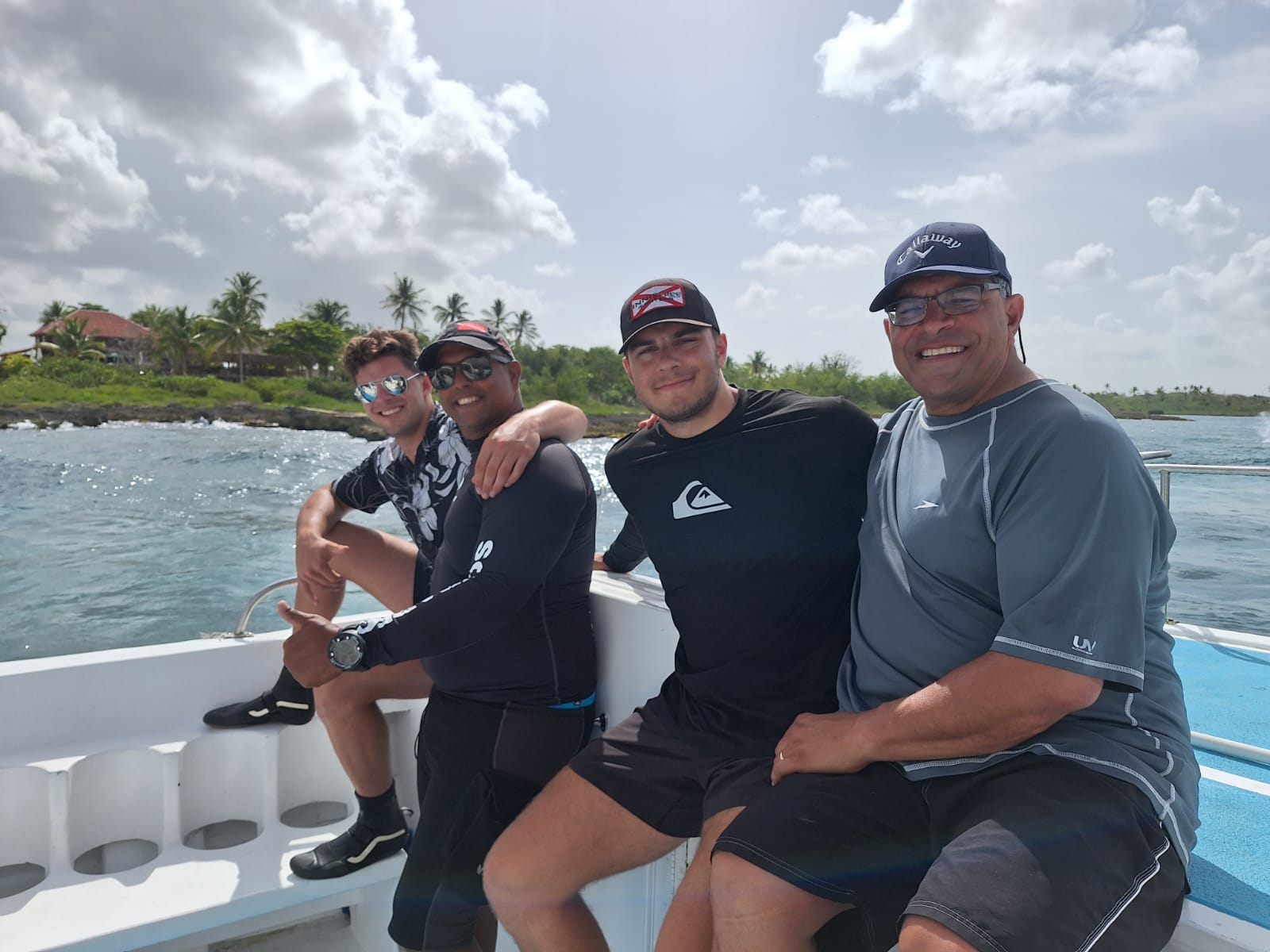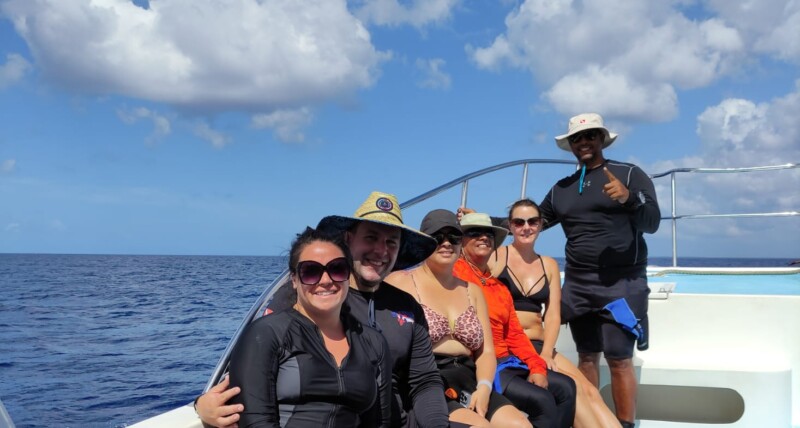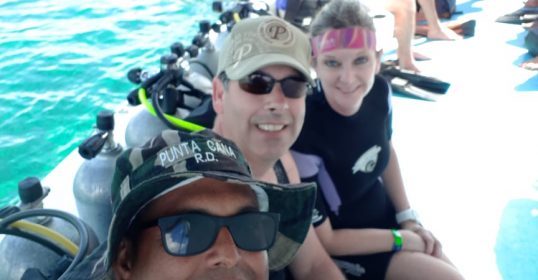Discovering the benefits of diving. In today’s fast-paced world, finding ways to improve our wellbeing is more crucial than ever. Wellbeing encompasses our physical, mental, and emotional health, and achieving a balance among these aspects is key to a fulfilling life. One surprising yet effective way to elevate your wellbeing is through diving. This underwater activity offers numerous benefits that can significantly enhance your quality of life. From stress reduction to improved fitness and mental clarity, diving provides a holistic approach to wellbeing.
Understanding the Concept of Wellbeing
Physical Wellbeing
Physical wellbeing refers to the condition of our bodies and how well they function. It includes regular physical activity, proper nutrition, and adequate rest. Diving contributes to physical wellbeing by offering a unique form of exercise that engages various muscle groups and promotes cardiovascular health.
Mental Wellbeing
Mental wellbeing involves our cognitive and emotional states. It includes the ability to manage stress, maintain focus, and cultivate a positive outlook. Diving has been shown to reduce stress levels and promote mental clarity through the meditative experience of being underwater.
Emotional Wellbeing
Emotional wellbeing is about how we understand and manage our emotions. It involves resilience, confidence, and the ability to cope with life’s challenges. Diving helps build emotional resilience and confidence by pushing personal boundaries and overcoming fears.
The Basics of Diving
What is Diving?
Diving, or scuba diving, is the practice of exploring underwater environments using a self-contained underwater breathing apparatus (SCUBA). This allows divers to breathe underwater for extended periods, giving them the freedom to explore marine life and underwater landscapes.
Types of Diving
There are several types of diving, including:
- Recreational Diving: Enjoyed by hobbyists for leisure and exploration.
- Technical Diving: Involves more complex and challenging environments.
- Commercial Diving: Conducted for industrial purposes, such as underwater welding.
- Free Diving: Diving without the use of breathing apparatus, relying on breath-holding.
Diving Equipment
Essential diving equipment includes:
- Mask: Provides clear vision underwater.
- Fins: Aid in efficient movement through water.
- Wetsuit/Drysuit: Maintains body temperature.
- Regulator: Delivers air from the tank.
- Buoyancy Control Device (BCD): Helps control buoyancy.
- Dive Computer: Monitors depth and time underwater.
Physical Benefits of Diving
Cardiovascular Health
Diving is a great cardiovascular workout. Swimming against the resistance of water strengthens the heart and improves circulation, reducing the risk of cardiovascular diseases.
Muscle Strength
Diving engages multiple muscle groups, including the core, legs, and arms. The resistance provided by water helps tone and strengthen muscles without putting stress on joints.
Flexibility
The movements involved in diving, such as swimming and maneuvering through water, enhance flexibility. This can help improve overall mobility and reduce the risk of injuries.
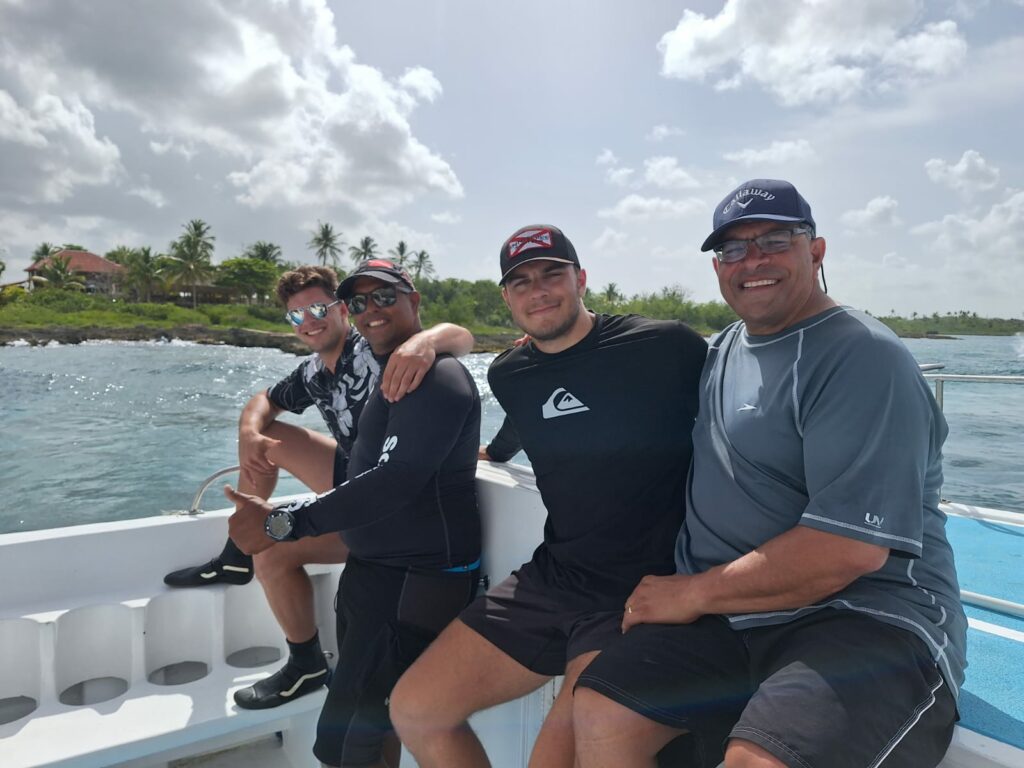
Mental Health Benefits of Diving
Stress Reduction
Being underwater has a calming effect on the mind. The weightlessness and serenity of the underwater environment help reduce stress and promote relaxation. Studies have shown that diving can lower cortisol levels, a hormone associated with stress.
Mindfulness
Diving encourages mindfulness, the practice of being present in the moment. The focus required during a dive, along with the rhythmic breathing, creates a meditative state that can improve mental wellbeing.
Mental Clarity
The underwater environment eliminates distractions, allowing divers to experience mental clarity and focus. This can lead to better problem-solving skills and enhanced cognitive function.
Emotional Wellbeing and Diving
Overcoming Fears
Diving can be a powerful tool for overcoming fears, such as the fear of water or enclosed spaces. Successfully facing these fears builds emotional resilience and confidence.
Building Confidence
Each dive is an accomplishment that boosts self-esteem and confidence. The skills and knowledge gained through diving contribute to a sense of achievement and personal growth.
Emotional Release
The underwater world provides a unique escape from everyday stressors. The sense of freedom and adventure can lead to emotional release and a rejuvenated spirit.
Stress Relief Through Diving
Mechanisms
The mechanisms behind stress relief through diving include the physical activity, the calming effect of water, and the focus required during a dive. These factors combine to create a powerful stress-relieving experience.
Scientific Evidence
Research supports the stress-relieving benefits of diving. Studies have shown that divers experience significant reductions in stress and anxiety levels, contributing to overall wellbeing.
Personal Experiences
Many divers report feeling more relaxed and centered after a dive. Personal testimonies highlight the transformative effects of diving on stress and mental health.
Improving Fitness with Diving
Full-Body Workout
Diving provides a full-body workout that engages various muscle groups. Swimming and maneuvering through water improve strength, endurance, and cardiovascular health.
Low-Impact Exercise
Unlike high-impact sports, diving is gentle on the joints. This makes it an ideal form of exercise for individuals with joint issues or those looking for a low-impact workout.
Endurance
Regular diving can enhance overall endurance. The sustained physical activity involved in diving helps improve stamina and cardiovascular efficiency.
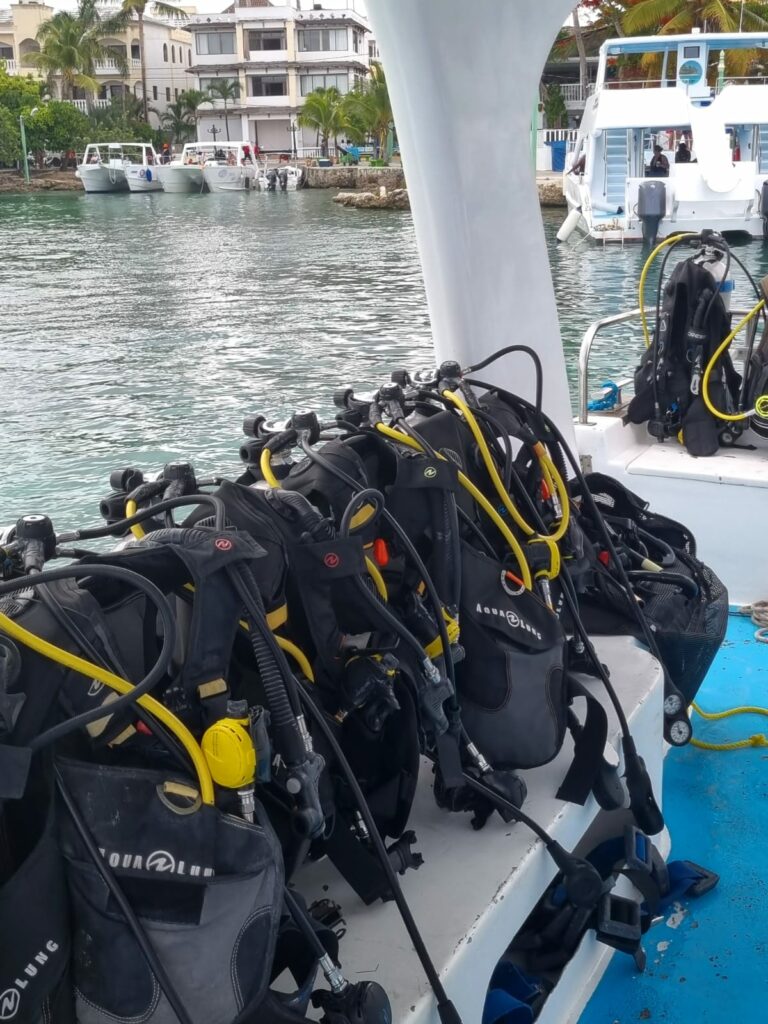
Diving as a Mindfulness Practice
Being Present
The immersive nature of diving fosters a sense of presence. Divers must be fully aware of their surroundings, which encourages mindfulness and helps reduce anxiety.
Meditation Techniques
The rhythmic breathing required in diving is similar to meditation techniques. This promotes a calm and focused state of mind, enhancing mental wellbeing.
Enhanced Focus
Diving requires concentration and attention to detail. This heightened focus can improve mental clarity and cognitive function, benefiting daily life.
Connection with Nature
Marine Life
Diving offers a unique opportunity to connect with marine life. Observing the diverse and vibrant underwater ecosystems fosters a deeper appreciation for nature and its beauty.
Environmental Awareness
Experiencing the underwater world firsthand raises awareness about environmental issues. Divers often become advocates for marine conservation and sustainable practices.
Spiritual Connection
Many divers describe a spiritual connection to the ocean. The tranquility and beauty of the underwater world provide a sense of peace and oneness with nature.
The Social Aspect of Diving
Community Building
Diving creates a sense of community among enthusiasts. Joining a diving club or group fosters friendships and shared experiences.
Teamwork
Diving often requires teamwork, whether it’s planning a dive or assisting a fellow diver. This builds trust and camaraderie among divers.
Shared Experiences
The shared experiences of diving create lasting memories and bonds. Divers often form strong connections through their adventures and discoveries.
Exploring the Underwater World
Biodiversity
The underwater world is home to a rich diversity of life. Diving allows you to explore coral reefs, shipwrecks, and other fascinating ecosystems teeming with marine creatures.
Unique Landscapes
Underwater landscapes are incredibly varied, from coral gardens to deep-sea trenches. Each dive offers a new and unique experience, contributing to personal growth and a sense of adventure.
Personal Growth
Exploring the underwater world challenges divers and pushes their boundaries. This leads to personal growth, increased confidence, and a sense of accomplishment.
Learning and Development in Diving
Courses and Certifications
Diving offers numerous learning opportunities through courses and certifications. These range from beginner classes to advanced technical training, allowing divers to continually improve their skills.
Lifelong Learning
Diving promotes lifelong learning and development. With each dive, divers gain new knowledge and experiences that enhance their understanding of the underwater world.
Skill Improvement
Continuous practice and training in diving lead to skill improvement. Divers become more proficient and confident, making each dive safer and more enjoyable.
Diving Destinations Around the World
Popular Sites
Some of the most popular diving destinations include the Great Barrier Reef in Australia, the Blue Hole in Belize, and the Red Sea in Egypt. These sites offer breathtaking underwater scenery and diverse marine life.
Hidden Gems
There are also many lesser-known diving spots that offer unique and stunning experiences. These hidden gems provide a more secluded and intimate diving adventure.
Travel Tips
When planning a diving trip, consider factors such as the best time to visit, local diving regulations, and necessary travel arrangements. Proper planning ensures a safe and enjoyable diving experience.
Diving Destinations in Dominican Republic
Local Dives in Punta Cana
Diving in Punta Cana is an exciting experience for divers of all levels. The turquoise waters provide an excellent opportunity to explore remarkable coral passages and swim through caverns scattered along the coast. For wreck diving enthusiasts, there are a variety of sunken ships just a short distance from the shore, including the stunning Astron Wreck in Bavaro. Home to the longest coral reef in the Dominican Republic, Punta Cana offers quality diving adventures just a short boat ride away from most locations.
Isla Catalina has very attractive dive sites.
The first one is “The Wall”, which is a really nice dive and full of corals. This site is also ideal for those who like to dive.
The second site is located on the other side of the island. This site is called “Aquarius” and is a beautiful shallow area teeming with life. After diving and snorkeling, we traveled to the island to relax, eat and drink until 3pm.
Bayahibe
In a nutshell, because it offers a truly unique and unforgettable underwater experience. Imagine swimming alongside giant sea turtles, exploring mysterious underwater caves, or letting yourself be hypnotized by the spectacular coral fans. In Bayahibe, the extraordinary becomes the norm
Safety Considerations in Diving
Precautions
Safety is paramount in diving. Always follow proper diving protocols, use reliable equipment, and stay within your training limits to ensure a safe dive.
Training
Adequate training is essential for safe diving. Completing certified courses and regularly practicing skills helps prevent accidents and enhances overall safety.
Common Risks
Common risks in diving include decompression sickness, equipment malfunctions, and marine life encounters. Being aware of these risks and knowing how to handle them is crucial for safe diving.
Diving for Different Age Groups
Children
Diving can be a fun and educational activity for children. Special programs and equipment are designed to ensure their safety and enjoyment.
Adults
For adults, diving offers a way to stay active, reduce stress, and explore new interests. It’s never too late to start diving and reap its benefits.
Seniors
Seniors can also enjoy diving, provided they are in good health and have the necessary training. Diving offers a low-impact way to stay fit and mentally sharp.
Diving with Disabilities
Adaptive Techniques
Adaptive techniques and equipment make diving accessible to individuals with disabilities. These adaptations ensure a safe and enjoyable diving experience for all.
Inclusive Programs
Many diving organizations offer inclusive programs for divers with disabilities. These programs provide the support and training needed to safely explore the underwater world.
Inspirational Stories
There are many inspirational stories of divers with disabilities overcoming challenges and achieving their diving goals. These stories highlight the transformative power of diving.
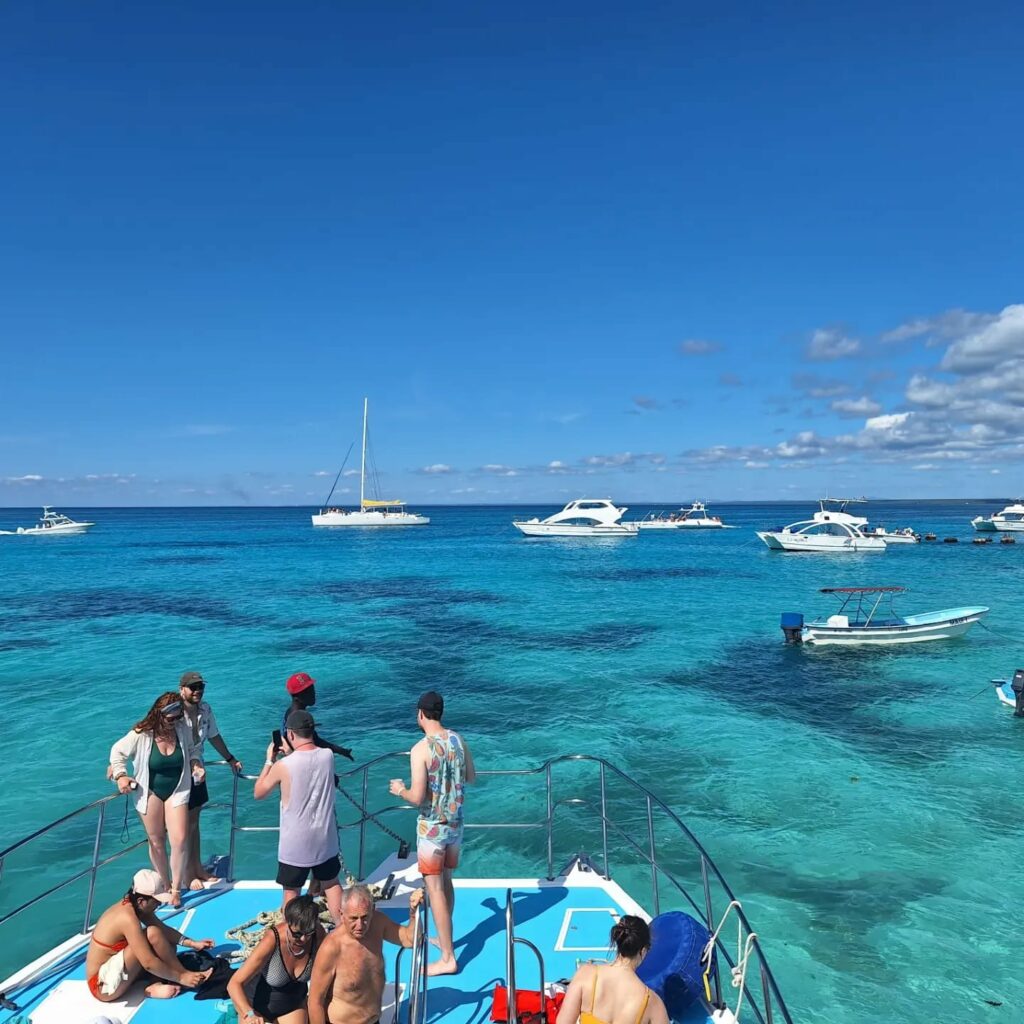
Environmental Benefits of Diving
Conservation Efforts
Divers often participate in conservation efforts, such as underwater cleanups and reef monitoring. These activities help protect marine ecosystems and promote environmental stewardship.
Eco-Friendly Practices
Eco-friendly diving practices, such as using reef-safe sunscreen and minimizing contact with marine life, help preserve the underwater environment for future generations.
Marine Protection
Divers play a crucial role in marine protection by raising awareness and advocating for sustainable practices. Their firsthand experiences make them powerful advocates for ocean conservation.
Diving Gear and Equipment
Essentials
Essential diving gear includes a mask, fins, wetsuit, regulator, BCD, and dive computer. These items ensure safety and comfort during a dive.
Maintenance
Proper maintenance of diving equipment is crucial for safety and longevity. Regular cleaning, inspection, and servicing keep gear in optimal condition.
Innovations
Innovations in diving technology continue to enhance the diving experience. Advances in dive computers, rebreathers, and underwater communication systems provide greater safety and convenience.
Financial Investment in Diving
Costs
Diving can be an expensive hobby, with costs including equipment, training, and travel. However, the investment is worthwhile for the unique experiences and benefits it offers.
Budget Tips
To manage costs, consider buying second-hand gear, joining a dive club for discounts, and looking for package deals on diving trips. Proper budgeting can make diving more affordable.
Value for Money
The value of diving extends beyond monetary costs. The physical, mental, and emotional benefits, along with the unforgettable experiences, make it a worthwhile investment in wellbeing.
Diving and Personal Growth
Overcoming Challenges
Diving presents various challenges, such as navigating underwater environments and managing equipment. Overcoming these challenges fosters personal growth and resilience.
Building Resilience
The skills and experiences gained through diving build resilience. Divers learn to adapt, problem-solve, and stay calm under pressure, which translates to other areas of life.
Achieving Goals
Setting and achieving diving goals, such as completing a certification or exploring a new dive site, provides a sense of accomplishment and motivation for personal development.
The Therapeutic Effects of Diving
Water Therapy
Water therapy, or hydrotherapy, has long been recognized for its therapeutic benefits. The buoyancy and pressure of water provide physical and mental relief, making diving a form of natural therapy.
Healing Properties
The healing properties of water, combined with the meditative aspects of diving, contribute to overall wellbeing. Diving can help alleviate symptoms of anxiety, depression, and chronic stress.
Stress Alleviation
Diving offers a unique escape from daily stressors. The focus and calmness required during a dive help alleviate stress and promote mental and emotional balance.
Diving Myths and Misconceptions
Common Beliefs
There are many myths and misconceptions about diving, such as it being dangerous or requiring peak physical fitness. Addressing these myths helps more people understand the accessibility and benefits of diving.
Facts
Fact-based information about diving emphasizes its safety, inclusivity, and diverse benefits. Educating the public about these facts encourages more people to take up diving.
Clarifications
Clarifying misconceptions about diving helps dispel fears and encourage participation. Providing accurate information about training, safety, and accessibility is crucial.
Stories from Divers
Nothing speaks louder than the real stories of people who have experienced the benefits of diving for their well-being. Here are some inspiring testimonies:
- “Diving helped me overcome my depression. Every time I submerged, I felt an incredible peace and calm that filled me with positive energy.” – Sarah, 28 years old.
- “After an accident that left me with reduced mobility, diving restored my self-confidence and showed me that I could still achieve great things.” – Juan, 42 years old.
- “Diving not only improved my physical condition but also helped me find an incredible circle of friends with whom I share this passion.” – Alejandro, 31 years old.
The Future of Diving
Technological Advances
Advances in diving technology, such as improved dive computers and underwater communication systems, continue to enhance safety and the overall diving experience.
Sustainability
Sustainability is becoming increasingly important in diving. Efforts to protect marine environments and promote eco-friendly practices are shaping the future of the sport.
Growing Popularity
Diving is growing in popularity as more people discover its benefits. Increased awareness and accessibility are making diving a mainstream activity.
Frequently Asked Questions
Is diving safe?
Diving is generally safe when proper training and safety protocols are followed. Always dive within your limits and use reliable equipment.
Do I need to be physically fit to dive?
While a basic level of fitness is required, diving is suitable for most people. Training and certification courses ensure you are prepared for the physical demands of diving.
Can children learn to dive?
Yes, children as young as 10 can learn to dive through specialized programs that ensure their safety and enjoyment.
What equipment do I need to start diving?
Basic diving equipment includes a mask, fins, wetsuit, regulator, BCD, and dive computer. It’s important to use quality gear and maintain it properly.
How can I make diving more affordable?
Consider buying second-hand gear, joining a dive club, and looking for package deals on diving trips. Proper planning and budgeting can make diving more affordable.
What are the environmental benefits of diving?
Divers often participate in conservation efforts and promote eco-friendly practices. Their experiences raise awareness and advocate for marine protection.
Conclusion
Diving offers a unique and holistic approach to elevating your wellbeing. From physical fitness and mental clarity to emotional resilience and environmental awareness, the benefits of diving are extensive and transformative. Whether you’re looking to reduce stress, explore new adventures, or connect with nature, diving is the key to unlocking a healthier and happier life. So take the plunge, explore the depths, and discover the profound impact diving can have on your wellbeing.

